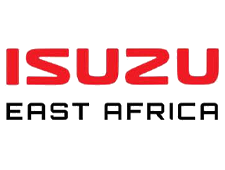G4S KENYA: Technology Transition Toughens G4S Kenya
In Kenya, the adoption of technology in security operations is setting the best apart from the rest as G4S leads the market in terms of quality service. MD Laurence Okelo tells Enterprise Africa that by including an increasing amount of sophisticated tech in the wide offering, manned guarding is vastly improved to the delight of value-conscious clients.
Security on the continent remains big business. Global and local companies compete for a share of a large pie, and those that can deliver enjoy considerable spoils. The largest private company in Africa is G4S, globally recognised for securing major international events and significant landmarks around the world. Previously, President of G4S Africa, Mel Brooks, told Enterprise Africa about the various challenges operating across varying markets and managing an employee base larger than 119,000 people. “Our ever-growing customer base in Africa and globally continues to trust in the quality, integrity, and expertise of our employees, products, and services,” he said.
But, while the trust remains, the product and service portfolio is slowly changing. This is clear in Kenya, a driver of African technology, where G4S is a powerhouse in premium private security. Managing Director, Laurence Okelo tells Enterprise Africa that post-pandemic pressure on cost and amazing new technologies are changing the game for security providers. He is keen on embracing this change, grabbing opportunities tightly, extending the arms of G4S around more clients, providing them with significant value – beyond just a manned guard. By providing an integrated solution, the company can and is delivering quality beyond what was previously possible. Four main offerings come in the form of security, cash solutions, technology, and secure logistics. The company also provides a fire response service, bolstering its strong range.
“In Kenya, in line with the G4S global strategy, we are an integrated security solutions company,” he begins.
“Manned guarding is the key offering in terms of revenue. The market in Kenya is very competitive and is largely price-driven. We play in the premium space and that is a segment that has been under a lot of pressure because organisations across all sectors are looking to manage their costs. In order to achieve growth, we have to look at technology and integrate solutions. Although manned guarding provides around 50% of our revenue, going forward the growth in security will come from technology. In secure logistics, growth is coming from distribution of pharmaceuticals and ecommerce. In cash, even though cash in circulation is going down, we are using Cash 360, our own innovative system for heavy users, such as supermarkets and petrol stations, where money is moved into a safe which is integrated to the customer’s bank and is immediately credited to their account.”
PROVEN PRESENCE
G4S Kenya is well-recognised around the country, and the services of the company are utilised in different proportions depending on location, industry sector, and client preference. With multi-million-dollar annual revenues, the company is deeply embedded in client operations and is exposed to success and failure of its customers.
“We have more than 11,000 employees in the country and most of those are front line because of the nature of our services,” says Okelo.
“There is one other international company in Kenya and that is our big competitor as they play in the same segment. There are also a whole host of other competitors, mainly medium-sized local security firms. We are the market leader with the greatest number of guards.”
Clients include numerous embassies and high commissions from around the world as well as foreign militaries with bases in Kenya. Here, manned guarding is essential. In heavy industries including manufacturing, agriculture, telecoms, and pharmaceuticals, there is a need for a blended service, incorporating traditional services with modern technologies. Okelo explains that this is because the largest portion of the cost of service comes from labour and this can be reduced through integration of technology. But for the big banks, where G4S supports almost the entire industry, there is a need for both comprehensive manned guarding and technology services.
“The value we give our banking customers comes from them opening up to us; some of the banks use all of our services and we are able to tailor specific offerings rather than an off-the-shelf solution.
“There will always be a place for our people,” he adds. “There are many areas where human interface is still required. Technology certainly has its limitations. Employment will never go away in the security space. In the longer-term, there may be a small dip in the numbers we need, but I believe there will be a place for the vast majority of the people we have. Looking at the overall industry, manned guarding is labour intensive and costs are driven by labour. Our customers are saying that they no longer want to pay beyond a certain point and the only way we can bridge the gap is through technology. We can reduce manned guarding but increase technology, giving a better value proposition, but at a lower cost. The reality is that that is where the industry is going.”
However, as industries around ecommerce and delivery of pharmaceuticals boom in Kenya, there will be a need for growing numbers. During the pandemic, G4S Kenya grew its secure logistics offering, retaining its position as the leading provider in the country. Delivering products to those in need, often in rural locations, was a boon for the company, and it continues to thrive in this space today.
“There is a direct link between our staff base growing and our revenue. We aim to grow and we see more people coming on board in peri urban and rural areas where there are opportunities. Across all of our business, if we are growing, we will need more people. We start with the end in mind – for example, if we were doing a risk assessment on a new factory, we would advise on optimisation of guarding and technology so that we don’t have a situation further down the line where we could have done things better,” explains Okelo.
HIGHEST STANDARDS
In Kenya, the Private Security Regulatory Authority announced in January that just 183 firms were authorised to operate representing just a small portion of the country’s 700,000 private security guards. The message to the public and businesses was to choose registered and vetted providers, adhering to the Sh27,000 per month minimum wage. If security companies are not registered and given a license, it will be illegal for them to operate.
G4S Kenya is fully compliant and leads the way with its code of conduct and ethics. In Africa, G4S is one of the only companies in security to have been labelled as a Top Employer, displaying its commitment to a positive working environment against stringent conditions.
“Some of the other companies do not adhere to the minimum wage and pay structure that we do,” details Okelo. “We hold ourselves to the highest standards and we believe in applying the law in a way which is fair and which it is intended. Many other companies choose a different interpretation, making their cost base lower than ours and that puts pressure on pricing and margins.”
Despite this, the company is still prominent across Kenya, active in all 47 counties. Thanks to the company’s presence, it continues to reinforce itself in the minds of all as a brand associated with quality. Importantly, the G4S history in Kenya eclipses that of its rivals.
“We don’t take things for granted – customers and consumers have options,” admits Okelo. “The strength of our brand is our heritage. We have been in Kenya for many years and people remember us for transitioning through Securicor to G4S. We have customers who have been with us for more than 60 years. Our visibility comes from our frontline staff. We have couriers in 145 different locations across Kenya, and many of those are guarding and cash branches alongside courier services. We have more than 800 vehicles in the country from trucks to motorcycles, and we have a lot of customer interaction everyday.”
This significant local presence is headed by Okelo – a leadership pro, with senior experience across Africa – and run by those with an understanding of the local market. International interference is non-existent and the only input from the global business is complementary, ensuring strategy is aligned.
“G4S was acquired by Allied Universal in 2021. That combination saw the strength of G4S around the world together with Allied Universal in North America giving us a global presence,” highlights Okelo. “We report to G4S International led by Ashley Almanza. We run day-to-day operations from here but we remain in line with global strategy. We seek out opportunities and determine our growth locally in terms of how we can apply technology, but it is always consistent with global strategy.” This also goes for the onboarding, upskilling, managing, and progressing of people.
Okelo sees growth opportunities for G4S Kenya and its people away from the main commercial centres of Nairobi and Mombasa, and he is confident that the company’s people will deliver local knowledge to keep the team at the industry’s cutting edge when it comes to prospects.
“We are comfortable with our footprint but what we do see is the growth of business in some of the more remote locations. A significant proportion of our business is still within the main regional centres of Nairobi, Mombasa, Nakuru, Kisumu and Eldoret and that reflects the nature of the country as that is where the vast majority of GDP is generated,” he says, adding that the country has a national vision to devolve and give more power to local counties and assemblies. “I see our growth coming from that rather than being focussed only on the competitive market of the large towns and cities. That is where we have an advantage as we are already present in those other areas. We also have the visibility and intelligence from all of our branches. We have the ability to see and hear first-hand whether there is a new factory or business opening.”
WHERE THE FUTURE IS
Right now, the company is busy introducing new technology to its portfolio. Everything from modern alarms, asset tracking, fire suppression technology, cameras, AI entry systems, infrared monitoring, and state-of-the-art command centres are all well-tested, but brand-new body cams, drones, and even wearable technologies are being put into place by G4S.
“It is happening across the board,” says Okelo. “Our market still has a number of customers that like to see the physical presence of a security guard – and there is a place for that.”
But the future is an environment where security personnel are proactive rather than reactive, and involved rather than disengaged. Globally, the company is rolling out a “Connected Officer” programme to deliver these types of important service improvements.
“Today’s security consumers demand a proactive, data-driven, intelligent, and informed approach to operational delivery. Security providers must supply their customers with clear and transparent performance data in real time, to drive better decision making,” details G4S Academy International Director, Noah Price.
“It’s about moving away from just guards and having cameras run by AI, or going as high-tech as the customer wants. It enables clients, for the same cost or less, to not need a physical presence. Information can come into a control room as assistance can be dispatched as and when it is needed rather than needing 24/7 people. That lowers the cost for everyone and improves security quality.”
This is being tested with a major agricultural client, with many thousands of hectares of land under management. Drones can be used to survey the site, piloted remotely from a control centre. Any disturbance can be reported with officers deployed when necessary. A system where hundreds of people patrol the land, in vehicles, is becoming outdated and expensive.
“Drones for us are important in security,” suggests Okelo. “There is only so much you can do with vehicles or people patrolling. We are piloting drones on site now, to monitor and give comfort that we can respond as necessary.”
He adds that drones are also entering the distribution market, with potential to deliver products to those in rural areas quickly and affordably.
“We don’t yet work in this space but we have relationships with those who do. They can provide pharmaceutical products to very remote locations. We can do the point-to-point and drones can then cover the last leg to people in rural areas.
“Technology in general – using cameras, detection, AI, drones – is where the future is.”
With rising inflation in the country, and a remaining global hangover from the Covid-19 pandemic – further fuelled by the crisis in Ukraine – the economic situation for global corporations is challenging. Thankfully in Kenya, G4S has carved out a niche and is continuing to pick up new opportunities. The country is expected to grow by 5.3% (according to the IMF), and this will help drive new requirements for G4S. Relative political stability and long-term strategy in Kenya also make the nation a favourite for FDI, with many international organisations – who already know G4S – choosing to set up African operations from the country. This is why Okelo remains confident in the scope at disposal.
“Our optimism comes from the portfolio we have,” he smiles. “Secure logistics grew during the pandemic. In cash, we are growing by bringing technology developed in-house by G4S. Security is under pressure and we will look to manage that by leveraging technology and optimising growth in other spaces. I am an optimist and I see the positives in a market that is very challenging.
“It’s fair to say that there are opportunities,” he concludes. “On the security side, the business outlook is a direct reflection of the outlook of our customers. If they feel pressure, they look to cut costs. Security is always up there when they look for savings. That is why we are talking about the opportunities for technology to play a strong role.”
As the company grows, Okelo points out that one thing is for sure, the quality of service delivery from G4S will never change as it lives its vision: serving and safeguarding customers, communities, and people around the world.



